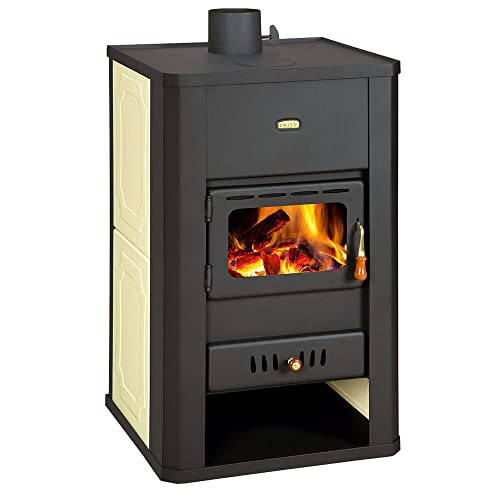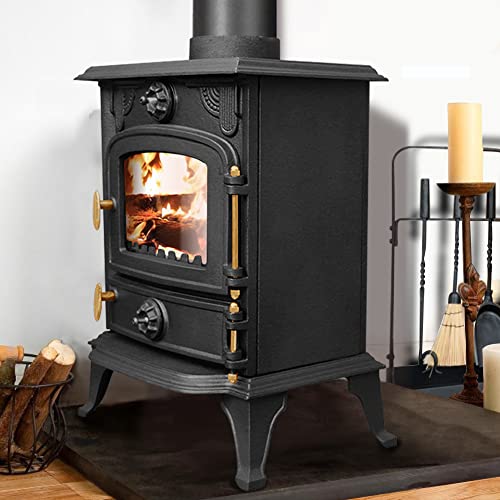What's The Job Market For Multi Fuel Stoves For Sale Professionals?
페이지 정보

본문
 Small contemporary multi fuel stoves fuel stoves for sale (Going In this article)
Small contemporary multi fuel stoves fuel stoves for sale (Going In this article)Small multi fuel stove ebay fuel stoves available for sale offer the convenience of burning several types of smokeless fuels. They also have a wide range of applications and can be utilized in a variety of rooms and home decors.
If you reside in a Smoke Control Area you should consider a DEFRA approved stove, such as the Stovax Stockton 5, to legally burn wood and other fuels that are smokeless.
Canister Stoves
Canister stoves burn fuel that is stored in sealed canisters made of propane, isobutane or a combination. The most well-known backpacking stove offers a competitive fuel efficiency as well as a simple operation. They are great for summertime excursions or trips where you have to pack light, or for those who prefer a simple system. They are not as efficient in harsh winter conditions and are not the best option for excursions at high altitudes.
Certain canister-fuel systems like the Jetboil MiniMo System or MSR WindBurner System have an integrated design that connects directly to the fuel canister. This allows for an extremely compact and lightweight system. While this can help you save space in your bag however, it exposes the canister to elements and makes it less resistant to the extreme winds. Soto's WindMaster stove is not integrated and comes with a pot support that is more durable. This design keeps the canister close to the burner, which allows for better heat control during the conditions of wind.
Many stoves in the canister can be troublesome in cold temperatures. As the temperature drops the pressure of the stove, which can cause poor performance or failure. The MiniMo pressure regulator counters this issue, delivering consistent heating in subfreezing temperatures.
Liquid fuel stoves can be refilled and require a separate fuel bottle. They are able to be used for a wider range of uses. They can utilize white gas, isobutane/propane blends, kerosene, and some take unleaded gasoline (the MSR WhisperLite International is an excellent example). These versatile designs are the best choice for those who plan to travel in areas where locating prefilled fuel canisters may be difficult.
Some backpackers prefer wood-burning equipment that are efficient in terms of fuel consumption but add a great deal to your pack's weight and bulk. There are also a few stoves that are designed for backpacking, which burn biomass or wood as fuel. One of them is the Solo Stove Lite. These stoves are better suited for backpacking trips that are shorter and don't provide the same level of convenience as a canister or liquid fuel system.
Liquid Fuel Stoves
Unlike canister stoves, liquid 2 kw multi fuel stove-fuel stoves with fuel make use of a pump to maintain the pressure inside the fuel bottle and force it into a small nozzle where it is burned. They are better for outdoor activities in cold weather and can be used even in temperatures below freezing. They are also much easier to refill than canister stoves because you simply open the lid and pour more in. The majority of stoves that run on liquid fuel operate on white gas which is a highly refined version of gasoline with a few or no impurities and burns hot and clean in below-freezing temperatures. Some stoves with liquid fuel may run on dirtier and less expensive fuels like kerosene or diesel.
The downside to these stoves is that they are heavier than canister stoves and they contain a large number of components and moving parts that need to be cleaned or primed in time. They are typically more difficult to operate in windy conditions as the pumping action can cause the flame to flicker and smoke. Many require a priming process that involves heating up just a little bit of fuel in a cup under the burner. This converts the liquid fuel into a gas.
Liquid fuel stoves work well in frigid temperatures, as do canister-based stoves. They are also more stable than canisters, because they are lower to the ground and have large stove legs, which serve as sturdy platforms. Some are as stable as Trangia multifuel stoves that can be used with the original Trangia burner (if you carry a Trangia adaptor for the X2).
 Certain models have a shaker jet, similar to MSR, which is more suitable for the igniting of white gases. They are also a good option for travel abroad where it may be difficult to find canisters of fuel or the right outdoor supply stores. There are many great, lightweight, and easy to use liquid fuel stoves on the market - the Kovea Hydra is one of the best.
Certain models have a shaker jet, similar to MSR, which is more suitable for the igniting of white gases. They are also a good option for travel abroad where it may be difficult to find canisters of fuel or the right outdoor supply stores. There are many great, lightweight, and easy to use liquid fuel stoves on the market - the Kovea Hydra is one of the best.Gas Stoves
When cooking, few things are as iconically American as gas stoves. It's difficult to find a home in the US without one, and they're well-known for several reasons: They heat up quickly, use natural gas (typically cheaper than electricity) to provide energy and don't require any special installation or venting.
But a growing number of scientists are raising concerns over the emissions they release. When firing gas stoves, they release formaldehyde and carbon monoxide at levels that exceed EPA guidelines and nitrogen dioxide, which is also linked to a range of health problems, including learning deficits in young children, lung infections and an increased risk of developing childhood asthma. Even when they're not operating, gas stoves emit methane. This is a greenhouse and is more potent than CO2, but doesn't last as long in the air.
The debate has led to a debate about whether gas stoves should or should not be banned. Lawmakers have also joined on the issue. A group of Republican Senators have introduced two bills to prevent the CPSC prohibiting them. House Republicans passed legislation to protect the right of consumers to choose the cooking appliance they want.
In the meantime, a few homeowners are deciding to switch from gas to electric or even adjusting their current stoves in an effort to cut down on harmful emissions. But others are still reluctant to part with their preferred kitchen gadget. Here's what you need to understand about the risks of these stoves.
A stove's emissions depend on the type of food that is being cooked and the temperature setting, however they can still produce an enormous amount of nitrogen oxide in operation. According to a study for 2020 by Rocky Mountain Institute, Physicians for Social Responsibility and Mothers Out Front, boiling water or baking a cake in a gas oven could produce NO2 levels that are above outdoor air quality standards. But roasting a hen or using high flame settings could cause these numbers to rise.
If you're interested in cutting down on your carbon footprint it is essential to purchase a stove with an efficient design and to follow a few simple energy-saving tips. For example, keep burners clean to ensure they're operating as efficiently as possible. It's also a good idea to only use the burners that you're required to, since the excessive use of them can waste up to 40 percent of their power.
Portable Stoves
A small stove is an excellent accessory to your camping gear particularly if you're constantly on the go. They can assist you in cooking and keep hydrated while cycling, hiking or hiking. Stoves are powered by a variety fuel sources including charcoal, wood, propane and gas. The price of stoves is determined by the fuel you select, how much energy and efficiency it uses in addition to its size.
Small multifuel stoves can be very cost-effective, particularly if you select one that runs on natural gas or propane. They are also extremely efficient, consuming a lesser amount of fuel than other stoves require to generate the same amount of heat. Gas stoves have a larger cooking surface than other options. This allows you to cook two large pans or pots at the same time.
Although you may think it is costly to buy a butane-burner, they are a great alternative for situations in which electricity isn't readily available. Its small size and lightweight weight make it easy to store and transport. It is also a quick-heating kind of stove, meaning you can cook your food in no time.
In areas that are remote, however, it can be difficult to locate stoves that burn liquid fuel. They're usually self-pressurized, so you do not need a pump. However, you may need to refill them once you've used them. The flame strength can be adjusted, meaning you don't have to reduce the output of heat while simmering.
Solid fuel stoves can be lightweight and easy to use, but they are not suitable for windy or rainy conditions. Solid stoves that burn fuel are more smelly and require Esbit fuel tabs.
A wood-burning stove has gained popularity in recent years due to the fact that it makes use of a readily available and sustainable fuel source. They aren't without limitations in their ability to control flame and heat, and they may also be subject to local fire bans. They must also be carefully maintained to prevent creosote accumulation and flammability issues. Make sure you adhere to all clearance and height restrictions. Also, make sure that you have a safe way to eliminate smoke and ash.
- 이전글Unexpected Business Strategies That Helped Window Repair Near To Succeed 24.08.31
- 다음글The 9 Things Your Parents Teach You About Upvc Window Repairs Near Me 24.08.31
댓글목록
등록된 댓글이 없습니다.